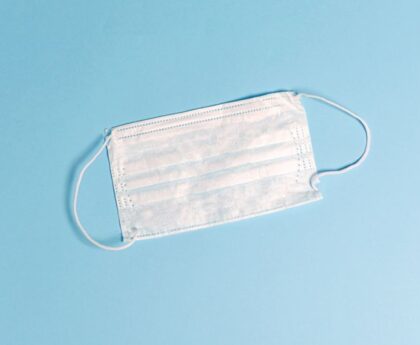FDA Advisers Vote Against Experimental ALS Treatment Pushed By Patients
Background
In a recent meeting, federal health advisers voted overwhelmingly against an experimental treatment for Lou Gehrig’s disease, also known as amyotrophic lateral sclerosis (ALS). This decision comes after years of effort by patients seeking access to the unproven therapy. The treatment in question, called NurOwn, is a stem cell-based therapy developed by the pharmaceutical company Brainstorm.
The FDA‘s Decision
The panel of experts from the Food and Drug Administration (FDA) voted 17-1 against the approval of NurOwn, stating that it has not been shown to be effective for ALS patients. One panel member abstained from voting. This decision aligns with the FDA‘s own negative review of Brainstorm’s application, which described it as “scientifically incomplete” and “grossly deficient.”
The lone positive vote in favor of the treatment came from a panel member representing patients. However, the FDA is not bound by the panel’s vote.
The Ethics of False Hope
During the meeting, Lisa Lee, a bioethics and research integrity expert from Virginia Tech, expressed concern about the creation of false hope. She stated, “Creating false hope can be considered a moral injury, and the use of statistical magic or manipulation to provide false hope is problematic.” This raises important ethical questions about the responsibility of pharmaceutical companies and regulatory agencies in managing patients‘ hopes and expectations.
Patient Advocacy and Regulatory Flexibility
This meeting was a result of ALS patients and advocates submitting a 30,000-signature petition, requesting a public meeting to discuss the experimental treatment. In the past year, the FDA has approved two new drugs for ALS, following significant lobbying efforts by advocacy groups.
FDA leaders have emphasized a new level of “regulatory flexibility” when reviewing experimental treatments for fatal and hard-to-treat conditions, including ALS. However, in the case of Brainstorm’s NurOwn, the FDA appears unwilling to overlook the failed study results and missing information, such as details on manufacturing and quality control, which are crucial for establishing the safety of the product.
The Impact of ALS
ALS is a devastating disease that destroys nerve cells in the brain and spinal cord. This leads to the loss of motor function, making it difficult or impossible for patients to walk, talk, swallow, and ultimately breathe. The majority of people diagnosed with ALS die within three to five years of their first symptoms. It is a condition that urgently requires safe and effective treatments.
Patient Testimonials
During the public comment session of the meeting, several ALS patients, their family members, and physicians spoke and implored the FDA to grant approval for the treatment. They presented before-and-after videos showing patients participating in Brainstorm’s study, demonstrating improvements in walking, climbing stairs, and other tasks that they attributed to NurOwn.
For example, Mitze Klingenberg spoke on behalf of her son, Matt Klingenberg, who was diagnosed with ALS in 2018. She stated, “When Matt is on NurOwn, it helps him; when he’s off of it, he gets worse.” These testimonials highlight the potential benefits of the treatment and the desperation of ALS patients and their loved ones for any glimmer of hope.
Editorial and Advice
The FDA‘s decision not to approve NurOwn raises challenging questions about the balance between patient advocacy, the need for effective treatments, and the rigorous standards of scientific evidence required for drug approval.
While patient advocacy is crucial and can help shed light on the urgent needs of those suffering from debilitating diseases like ALS, it is important that scientific evidence remains the foundation of treatment approval. The FDA‘s commitment to “regulatory flexibility” should not compromise this important principle.
Ultimately, patients deserve access to safe and effective treatments. However, it is imperative that drug developers provide comprehensive and robust evidence to support their therapies. It is the responsibility of the FDA to ensure that the evidence presented meets the necessary standards for safety and efficacy.
In cases where experimental treatments show promise in early studies but fail to demonstrate significant benefits in larger, well-controlled trials, the FDA must make cautious and informed decisions. The risk of granting approval based on insufficient evidence could not only harm individual patients but also set a dangerous precedent for future drug approvals.
Going forward, it is essential that pharmaceutical companies engaged in the development of treatments for diseases like ALS commit to rigorous research and clinical trials. Patients and their advocates must continue to actively engage with regulatory agencies and advocate for their needs, working collaboratively to ensure that the process for evaluating new treatments remains transparent and evidence-based.
While the denial of approval for NurOwn is undoubtedly disappointing for ALS patients and their families, it is important to remember that the FDA‘s decision is based on scientific rigor and a commitment to patient safety. The search for effective treatments for ALS must continue, and other promising therapies should be thoroughly investigated and pursued. By doing so, the medical community can continue to strive towards providing hope and improved quality of life for those affected by this devastating disease.

<< photo by Chokniti Khongchum >>
The image is for illustrative purposes only and does not depict the actual situation.
You might want to read !
- Surge in COVID-19 Infections and Hospitalizations Expected in Canadian Provinces
- Introducing “Dark Shadows: The Unveiling of a Sinister Tale”
- Lyme Disease and the Power of Vulnerability: Bella Hadid’s Hospitalization Photos
- “He’s Had a Rough Summer”: Pressure Mounts on Xi to Relinquish Control as China’s…
- CDC advises costly measures for RSV prevention in Canada
- Marjorie Taylor Greene: Biden’s Not-So-Secret Foe
- Canadian Talent Shines Bright: Revealing the Winner of ‘America’s Got Talent’
- Breaking Barriers: Canadian Sensation Takes the Crown in America’s Got Talent 2023 Season 18
- Houston Dynamo Clinches Victory in Intense Showdown Against Inter Miami: Live Updates
- BCLC Anticipates 20% Surge in Ticket Sales as Lotto 6/49 Reaches New Heights
- “France Rugby Captain Antoine Dupont Consults Surgeons for Facial Injury: A Blow to the Team’s World Cup Hopes?”
- Sherry Pollex: A Legacy of Inspiration for Generations to Come




